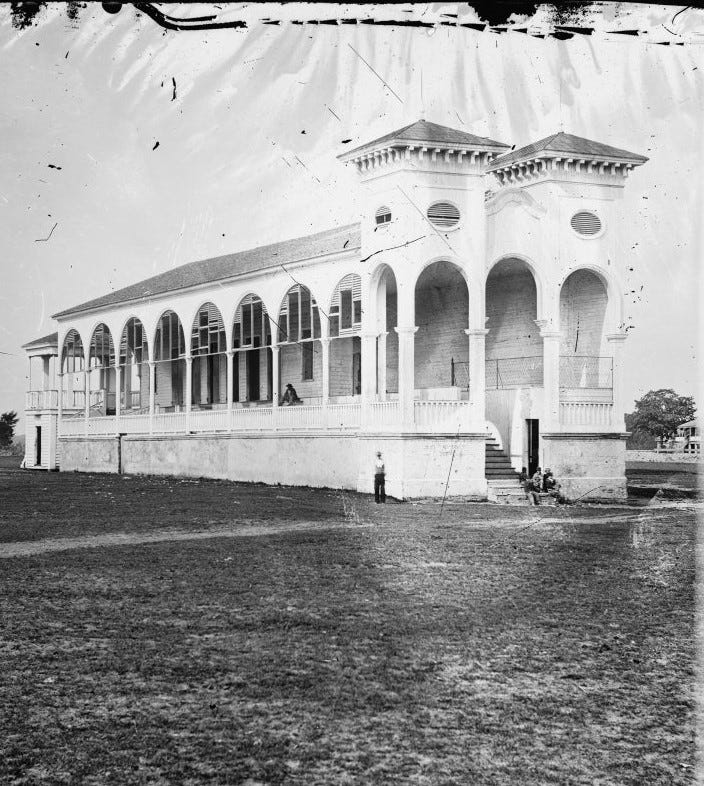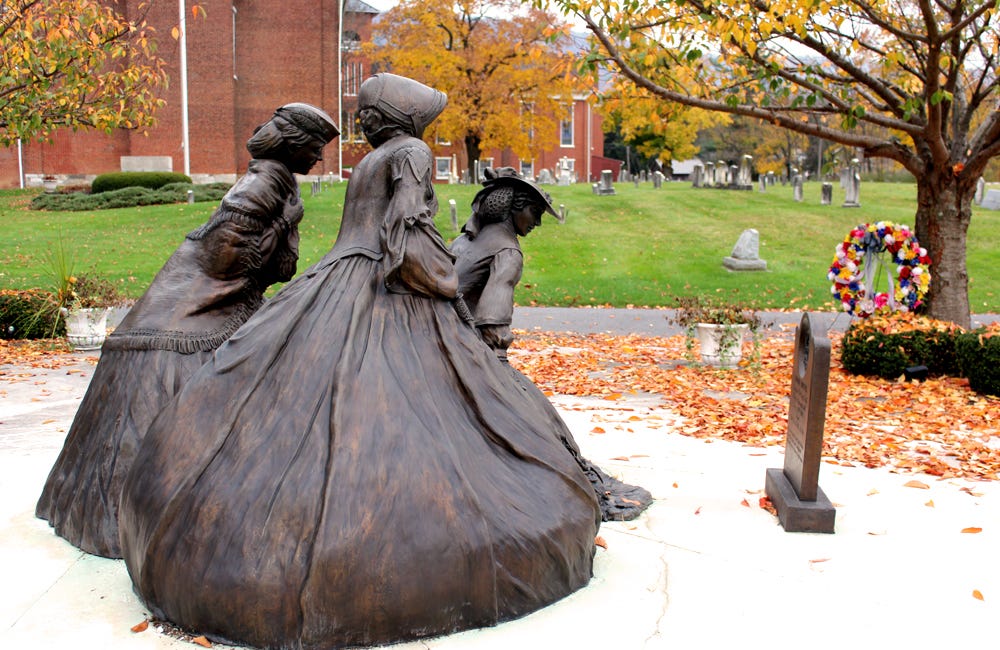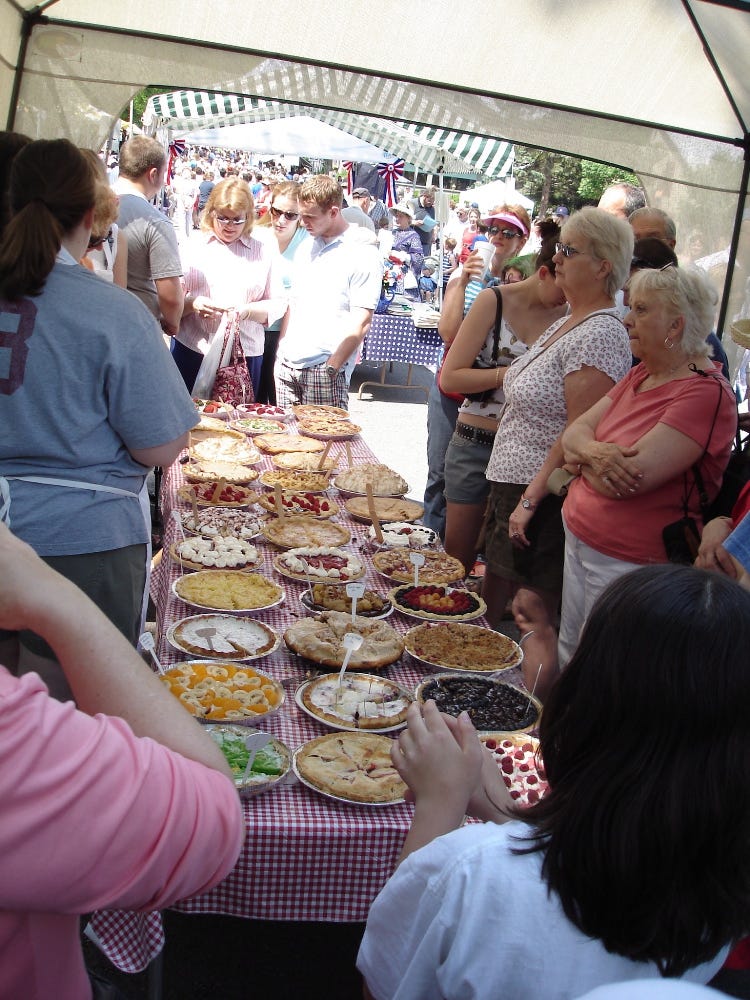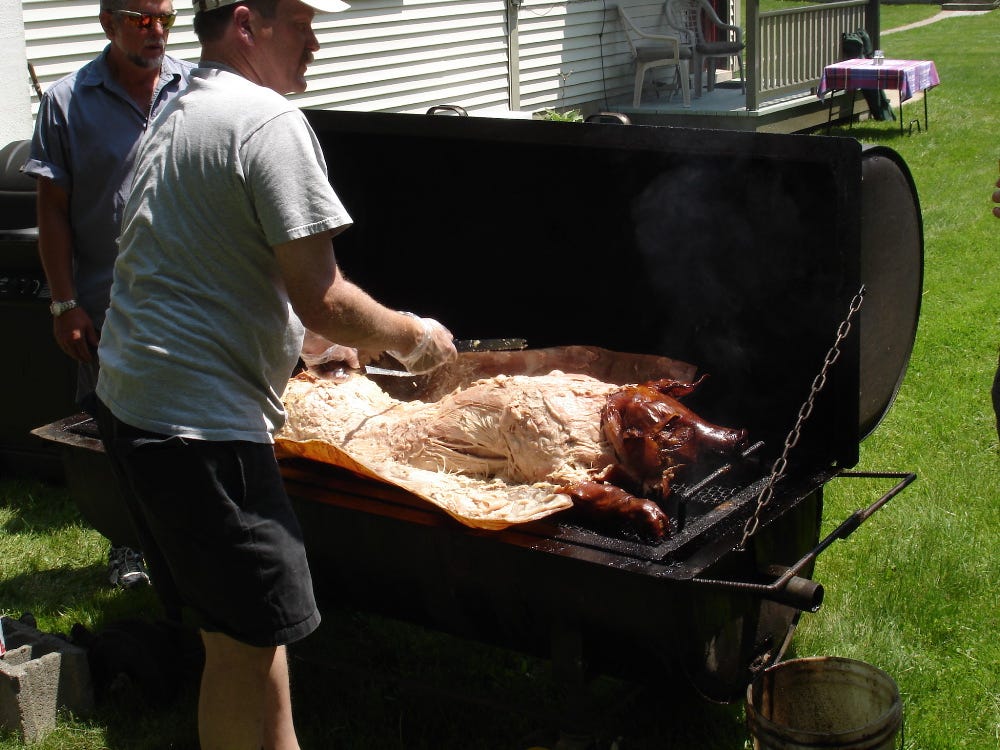A Fraught Decision
Many towns claim they invented Memorial Day. We're choosing to go to one of them.
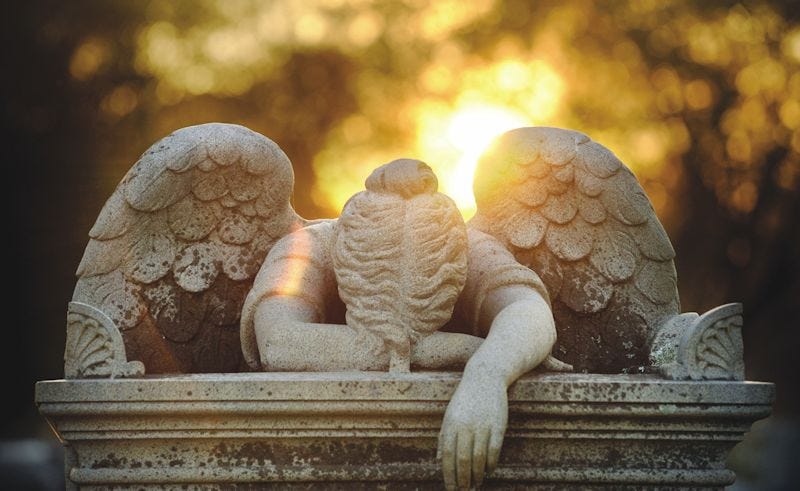
Welcome to Memorial Day, the official start of summer and the first national holiday we may finally all celebrate together! Parades, fireworks, and cookouts will feel like Armistice Day.
If you are in one of the approximately 25 towns and cities across the nation that brag about being the holiday’s birthplace then there’s a good bet there will be historical reenactments. The war between the states continues to be fought with the South claiming they deserve more credit than the North. Whoever is right, the local legends share similar details. Soon after the end of the Civil War (or, in the case of Columbus, Mississippi, after the 1862 Battle of Shiloh) a group of local women made their way to the town’s cemetery to lay spring flowers on the graves of their fallen men. Charlestown, South Carolina is very different. On May 1, 1865, freed black slaves marched to a plantation’s race course where Union soldiers had been imprisoned. They reburied the more than 257 men who died there and encircled the graveyard with a white picket fence. Charlestown does not reenact what happened at the race course.
The choice to head to Boalsburg, Pennsylvania, centers on the smallness of the town (population 4,331) and the residents’ enthusiasm for the day’s activities. The town is so small you really may miss it as you barrel down Route 322 on your way to or from State College, the home of Pennsylvania State University’s main campus. In four miles, a large World War II cannon indicates the presence of the Pennsylvania Military Museum. The cannon is pretty much set up to blast across a graveyard to hit the steeple of a red brick church. Keep going to the church. You’ll soon spy a life-size bronze statue of three women in hoop skirts. You have arrived in Boalsburg.
Nearly every house, shop, and tavern is draped in patriotic-themed bunting and flags. Tables and chairs have been arranged on lawns for visitors or tired passersby, and the streets are lined with an abundance of food that keeps everyone happy. Amish and Mennonite farmers have worked the surrounding land since the early 1700s and their influence persists, especially in the region’s cooking style. There’s a popular perception that this means hearty (short for heavy) dumplings and noodles and heaps of meat subtly spiced, if at all. Good Amish and Mennonite cooking is neither. Dumplings and noodles are light, even fluffy. Pork, beef, and chicken taste so fresh that they may seem like they’re still kicking.
This is the kind of food you’ll find throughout Boalsburg’s Memorial Day, starting with chicken corn chowder offered at the church. All have been simmered by women from their personal take on the recipe, and all are hard to pass up, even on a steaming hot day. Nearby, a long tent shelters pies of every conceivable variety. They’re not actually available until after two elderly women who look like they were born with rolling pins in their hands judge a winner. It takes an annoyingly long hour for them to announce the winner and exactly seven minutes for each pie to be devoured by the waiting crowd, even from the pies that lost.
And then there’s the pig cooked by the handy middle-aged men of the Harris Township Fish and Game Commission. They’ve roasted a pig here since they were young men to help augment their state budget. The story goes that, for their first outing, they asked a local farmer if he had an extra pig. He did and, after hauling it into a truck, the men took it to the high school athletics field, where they somehow got it to die. More questions about the event are strenuously ignored by silence and averted eyes. These days the pig is donated and butchered by a Mennonite farmer in Belleville.
They lay the pig over the hot coals in their homemade cooker the day before. Given the memory of an earlier incident when the tank caught fire and another time when it rolled down the hill, the guys divvy up a constant night watch.
By mid-afternoon of the celebration, they roundly agree the pig has reached perfection. They’ve been up all night, their beer cups kept full, and the men are in a highly flirtatious mood when a knife is run down the pig’s back and around its neck. The blade slips under the caramelized skin to reach the cheeks, then the little nodes of flesh are scooped out and placed on the snout. They mutter among themselves for awhile to decide who should have the delicacy. In the end, there’s enough tiny slices to go around.
“I’ll tell you the secret to a good pork sandwich,” one of the older men say.
“You can’t tell her!” another fairly snaps.
“The secret to a good pork sandwich is horseradish. Not that weak store bought-stuff. I’m talking real horseradish. Grated a second before.”
“We don’t have any left,” the objecting man says.
“We’ll find you some.”
He does, and it is a great pork sandwich, the meat gamy though sweet, juicy, and with an enlivening burn from the fresh horseradish.
By this time, many attendees have set up lawn chairs under shady trees along the edge of the churchyard. The coolness of the church has drawn others inside for a service that follows an 18th-century liturgy. They recite prayers for a young country and give thanks for its exceptionalness in God’s eyes. George Washington’s favorite prayer and a full-throated rendition of the Battle Hymn of the Republic ends the service.
The shadows grow long outside, the falling summer light gilded. Children chase each other around the tombstones of soldiers from every American war—starting with the Revolution and ending with Iraq. At 6 p.m., a lackadaisical skirmish between the blues and the grays ends undecidedly with the arrival of a small parade, locally called The Walk. All stand to listen to prayers, speeches, and the reading of the middle-school student’s winning essay. The anthem is sung, Amazing Grace is played on the bagpipes, followed by a rifle and cannon salute, taps, and, finally, the toll of church bells. The hoop skirted women, joined by the town’s Girl Scout and Brownie troops, once more place flowers on the graves.
There will be only a few people in Boalsburg this year. Pennsylvania isn’t lifting its COVID restrictions until Memorial Day when they hope 70% of the population has been vaccinated. Right now, 53% are fully vaccinated. The race and The Walk will take place, though. You just have to get there before the crowd is capped. Then plan to come back next year for the soup and the pies and the pig and the honoring of our dead.



